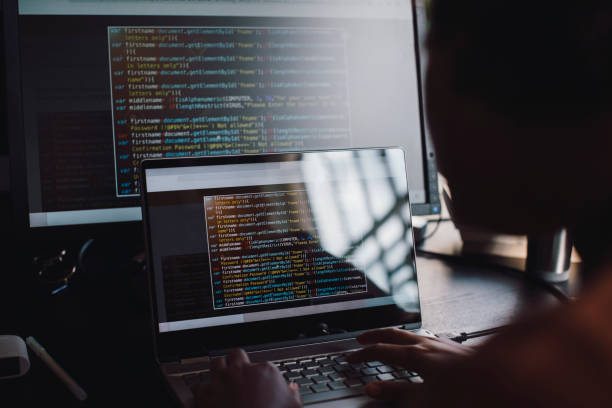7 min to read
Computer Basics | Learning to Code Step-by-Step - An In-Depth Guide
Beginner's Roadmap to Programming

Coding is the magic behind every website, app, and software you use. It’s the language that computers understand and follow. But coding is not only for programmers and engineers. It’s for anyone who wants to create something amazing with technology. Whether you want to start your own business, make a difference in the world, or just have fun, coding can help you achieve your goals. In this guide, you will learn everything you need to know to start coding and discover the history, the benefits, the myths, and the future of coding. You will also find out how to choose the right programming language, the best tools and resources, and the most practical tips for learning coding. This guide is your ticket to the exciting and rewarding world of coding.
What is Coding and Why Does It Matter?
Firstly, coding is the process of writing instructions for computers to perform tasks. These instructions are called code, and they are written in different languages that computers can understand. Some of the basic concepts of coding are variables, loops, and functions.
- Variables are like containers that store data.
- Loops are like cycles that repeat code.
- Functions are like blocks of code that perform a specific task.
Secondly, Coding has a long and fascinating history. It started in the 1940s with the first electronic computers and the first programming languages like FORTRAN. Since then, coding has evolved and improved with new languages like Python, which is one of the most popular and versatile languages today. Coding has many applications in different fields and industries. It can be used to create websites, apps, games, software, robots, artificial intelligence, and more. Coding is also a powerful tool for innovation and problem-solving. It can help you create solutions for real-world challenges and make a positive impact on society.
How Can Coding Benefit You?
Coding can offer you many benefits, both personally and professionally. Here are some of the reasons why you should learn coding:
- Career Opportunities: Coding is one of the most in-demand and high-paying skills in the job market. You can work as a developer, a designer, a tester, a data analyst, and more. You can also work in different industries, such as tech, education, healthcare, entertainment, and more.
- improved Cognitive Skills: Coding can improve your logical thinking, problem-solving, creativity, and attention to detail. These skills can help you in other aspects of your life, such as learning, working, and communicating.
- Empowerment as a Learner: Coding can help you learn new things and explore new topics. You can use coding to build your own projects, experiment with different ideas, and express your creativity. You can also use coding to access online courses, platforms, and communities that can support your learning journey.
What are the Common Myths About Coding?
Coding can seem intimidating and complicated, but it’s not as hard as you might think. There are many myths and misconceptions about coding that can discourage you from learning it. Below, we explore prevalent misconceptions and unveil the realities behind them:
- Myth: Coding is only for geniuses. Reality: This is not true. Coding is for anyone who is willing to learn and practice. You don’t need to be a math whiz or a computer expert to code. You just need to have a curious mind and a positive attitude.
- Myth: Coding is only for men. Reality: This is not true. Coding is for everyone, regardless of gender, age, background, or experience. There are many women who code and who have contributed to the field of coding, such as Ada Lovelace, Grace Hopper, and Katherine Johnson.
- Myth: Coding is boring and tedious. Reality: This is not true. Coding is fun and engaging. You can use coding to create anything you can imagine, from games and animations to websites and apps. You can also use coding to challenge yourself, learn new things, and connect with other coders.
How to Choose the Right Programming Language?
Programming languages are the languages that you use to write code. There are hundreds of programming languages, each with its own features and applications. Some of the most popular and frequently used programming languages are:
- Python: A general-purpose, high-level, and easy-to-learn language that can be used for web development, data analysis, machine learning, and more.
- Java: A powerful, object-oriented, and cross-platform language that can be used for web development, mobile development, desktop applications, and more.
- C#: A modern, versatile, and object-oriented language that can be used for web development, mobile development, game development, and more.
- JavaScript: A dynamic, scripting, and web-based language that can be used for web development, interactive websites, web applications, and more.
- HTML/CSS: The standard markup and styling languages that can be used for web development, web design, and web content.
Choosing the right programming language depends on your interests and goals. Consider factors such as:
- The Purpose of Your Coding: What do you want to create with coding? A website, an app, a game, or something else?
- The Popularity of the Language: How widely used and supported is the language? How easy is it to find resources and help for the language?
- The Difficulty of the Language: How easy or hard is it to learn and use the language? How much time and effort are you willing to invest in learning the language?
Remember, you don’t have to stick to one programming language. You can learn multiple languages and use them for different purposes. You can also switch languages if you find a better fit for your needs.
What are the Best Tools and Resources for Learning Coding?
Learning coding can be easier and more enjoyable with the right tools and resources. Here are some of the best ones:
- FreeCodeCamp: A free and interactive platform that teaches you web development, data analysis, and machine learning. You can also earn certifications and work on real-world projects.
- Codecademy: A free and interactive platform that teaches you various programming languages and skills. You can also access quizzes, projects, and courses.
- Stack Overflow: A free and engaging community of coders who can help you with your coding questions and problems. You can also browse topics, answers, and tutorials.
- Code.org: A free and fun platform that teaches you the basics of coding and computer science. You can also play games, watch videos, and join events.
- CodinGame: A free and fun platform that teaches you coding through games and challenges. You can also compete with other coders and improve your skills.
What are the Most Practical Tips for Learning Coding?
To make the most of your learning experience, follow these practical tips:
- Set Realistic and Specific Goals: What do you want to achieve with coding? How will you evaluate your progress and success?
- Build a Portfolio: Showcase your skills and work through your coding projects.
- Network with the Coding Community: Connect and collaborate with other coders who share your interests and goals.
- Balance Coding with Other Life Responsibilities: Manage your time and energy effectively.
- Maintain a Sustainable and Rewarding Coding Practice: Keep yourself motivated and inspired, and learn from your achievements and mistakes.
What is the Future of Coding?
Coding is not only a skill for the present but also a skill for the future. It is constantly evolving with new trends and technologies, such as:
- Artificial Intelligence and Machine Learning: Creating systems that perform tasks normally requiring human intelligence.
- Blockchain and Cryptocurrency: Developing decentralized and secure systems for data and value transfer.
- Internet of Things and Wearable Devices: Creating connected and smart devices that collect and exchange data.
Finally….
Coding is a transformative skill. It can help you create with technology, improve cognitive skills, open new career opportunities, and empower you as a learner. This guide has introduced you to the world of coding, covering its history, benefits, myths, and future possibilities. You have also learned about choosing the right programming language, the best tools and resources, and practical tips for learning coding. Now, it’s time to start your coding journey.

